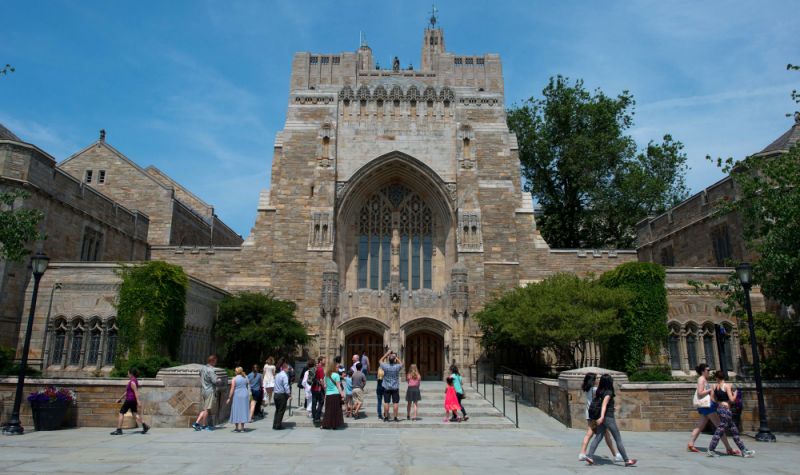
Bloomberg reports that China said it was "very regrettable" that the U.S. and some American institutions have imposed restrictions on humanities exchanges, after Yale University's president pledged support for international students amid growing tensions between the two countries. Personnel and cultural exchange "should not be politicized and interfered with," Chinese Foreign Ministry spokesman Lu Kang said at a briefing in Beijing on Monday. "This is inconsistent with the aspirations of the two peoples and has caused widespread concern among the academic circles of China and the United States and all sectors of society." Lu was responding to a question about an open letter Yale president Peter Salovey sent to students and faculty last week affirming the Ivy League school's "steadfast commitment" to its foreign talent. U.S. concerns about technology and intellectual property theft by China have been at the center of the deepening trade war between the two countries.
The Wall Street Journal wrote that as China's economy has grown, and its global reach has expanded, it no longer feels the need to adapt simply to be accepted into a Western-led financial and trade system. Instead, it has developed an alternative to that system—its own kind of authoritarian capitalism—that it believes is at least at viable, and perhaps the better model for others to follow. "China sees itself less as slotting into an existing system and more as a creator and shaper of a new system," says Keyu Jin, a professor at the London School of Economics and an expert on the Chinese economy. "It finds the so-called Western financial wisdom and the liberal democratic model unappealing and unconvincing, and in the process of breaking down."...Chinese officials have had a change of attitude, experts say. They see a Western financial system that led the world to the brink of depression with the 2008 financial crisis, and Western democracies trapped in debilitating paralysis, and aren't sure that is the model for them.
- 2019-05-26 China Warns Traders of 'Huge Loss' If They Short the Yuan
- 2019-05-24 China Commits to Trade Talks Amid ‘Groundless’ Huawei Suspicions
- 2019-05-23 Trump calls Huawei ‘dangerous’ but says dispute could be resolved in trade deal
- 2019-05-22 Trump administration considers banning another major Chinese firm
- 2019-05-21 U.S. Restrictions on Huawei Expose a High-Tech Achilles’ Heel for China
- 2019-05-20 As Huawei Loses Google, the U.S.-China Tech Cold War Gets Its Iron Curtain
- 2019-05-19 Rural America feels the sting of Trump's China trade war
- 2019-05-17 I.M. Pei, Master Architect Whose Buildings Dazzled the World, Dies at 102
- 2019-05-16 China Arrests 2 Canadians on Spying Charges, Deepening a Political Standoff
- 2019-05-15 Trump Moves to Ban Foreign Telecom Gear, Targeting Huawei and Escalating Battle With China
- Reuters China dreams on hold: heartland city feels chill of economic slowdown
- Bloomberg Huawei Founder Ren Denies IP Theft
- CNN China's tech workers burn out mentally and physically in the '996' rat race
- Bloomberg Robo-Deliveries Are Now Reality in China
- Bloomberg Alibaba Is Said to Consider Raising $20 Billion Via Second Listing
- The Diplomat China Makes Progress in Induction of Second S-400 Air Defense System Regiment
- Reuters Exclusive: Huawei reviewing FedEx relationship, says packages 'diverted'
- WashingtonPost The Latest: NHL won't hold games in China next season
- NY Times White Panda Is Spotted in China for the First Time
- FT China pays record $22bn in corporate subsidies in 2018
- Reuters Trade war has limited impact on China financial markets: regulator
- Reuters Hong Kong regulator fines China Merchants $3.4 mln for IPO failure
- WSJ Trade Tension Deals Tractor Makers a Fresh Blow
- Reuters China says strongly opposes Bolton meeting Taiwan official